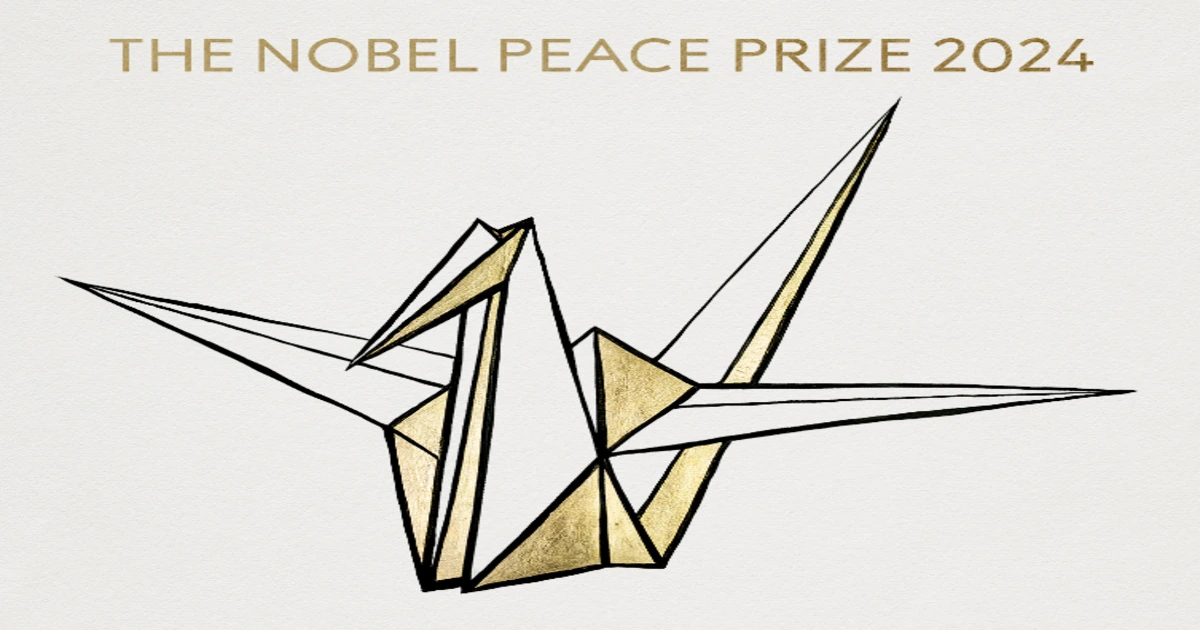The 2024 Nobel Peace Prize has been awarded to Nihon Hidankyo, a grassroots organization of atomic bomb survivors from Hiroshima and Nagasaki, for its tireless efforts to rid the world of nuclear weapons. Formed by survivors of the only nuclear attacks in human history, Nihon Hidankyo has dedicated its mission to ensuring that nuclear weapons are never used again.
Recognizing the Impact of Hibakusha
Nihon Hidankyo, also known as “Hibakusha” (a term used for survivors of the atomic bombings), has long been at the forefront of the global anti-nuclear movement. The Norwegian Nobel Committee praised the group for its ability to communicate the harrowing experience of nuclear warfare through witness testimonies, making a strong case against the future use of nuclear weapons.
The committee emphasized that the Hibakusha “help us to describe the indescribable, to think the unthinkable, and to somehow grasp the incomprehensible pain and suffering caused by nuclear weapons.” Their testimonies, collected over decades, serve as powerful reminders of the devastation caused by the atomic bombs and fuel the global call for disarmament.
Survivors of Hiroshima and Nagasaki: Voices for Peace
The atomic bombings of Hiroshima and Nagasaki by the United States in August 1945 remain some of the darkest moments in human history. Over 80,000 people were killed instantly in Hiroshima, while another 70,000 died three days later in Nagasaki. In the aftermath, tens of thousands more succumbed to radiation sickness and injuries.
Survivors of these attacks, known as Hibakusha, endured severe trauma, physical injuries, and long-term health effects from radiation. For many years, their stories were ignored or overshadowed by the broader political landscape. However, in 1956, survivors formed Nihon Hidankyo to advocate for nuclear disarmament and to ensure that their experiences were shared with the world.
Today, Nihon Hidankyo continues to send annual delegations to the United Nations and international peace conferences, urging global leaders to commit to the abolition of nuclear weapons.
Global Praise for the Nobel Peace Prize Award
Dan Smith, director of the Stockholm International Peace Research Institute (SIPRI), expressed his approval of the decision, stating, “The Hibakusha remind us daily that nuclear war can never be won and must never be fought.” He highlighted the significance of their message in the context of today’s escalating nuclear tensions.
Japanese Prime Minister Shigeru Ishiba also praised the decision, calling the award “extremely meaningful” and acknowledging Nihon Hidankyo’s long-standing efforts in the fight for nuclear disarmament.
A Longstanding Call for Nuclear Abolition
The decision to award the Nobel Peace Prize to Nihon Hidankyo comes at a critical time in history. While the world has not seen the use of nuclear weapons in warfare since 1945, the threat of nuclear escalation looms large. Russia’s invasion of Ukraine and its repeated nuclear threats, as well as global nuclear modernization efforts, make this issue even more urgent.
According to SIPRI’s 2024 report, there are approximately 12,121 nuclear warheads worldwide, with 9,585 in military stockpiles ready for potential use. Although the total number of warheads has decreased since the Cold War, many countries are modernizing their arsenals, including the United States, Russia, China, and North Korea.
The Nobel Committee highlighted that the decision to award Nihon Hidankyo the prize is “securely anchored” in Alfred Nobel’s will, which calls for “fraternity between nations” and the reduction of standing armies. While nuclear weapons were not a factor when the will was written, the committee’s decision underscores the crucial role disarmament plays in promoting global peace.
Challenges Ahead for the Anti-Nuclear Movement
Despite the award and global recognition, the Hibakusha face considerable challenges in achieving their mission. Nuclear weapons continue to be viewed by many nations as essential to their national security, and the taboo against their use, while still holding, is under increasing pressure.
Henrik Urdal, director of the Peace Research Institute Oslo (PRIO), noted that this award comes at a crucial time when nuclear threats are rising and countries are expanding their nuclear capabilities. He stressed that Nihon Hidankyo’s work remains more relevant than ever in the face of these challenges.
FAQs About Nihon Hidankyo
Q: What is Nihon Hidankyo?
A: Nihon Hidankyo, also known as Hibakusha, is a Japanese organization formed by survivors of the atomic bombings of Hiroshima and Nagasaki. The group advocates for nuclear disarmament and educates the world about the horrors of nuclear warfare.
Q: Why did Nihon Hidankyo win the Nobel Peace Prize?
A: Nihon Hidankyo won the 2024 Nobel Peace Prize for its decades-long efforts to achieve a world free of nuclear weapons and for its powerful witness testimonies, which have emphasized the catastrophic consequences of nuclear warfare.
Q: What does “Hibakusha” mean?
A: “Hibakusha” is a Japanese term that translates to “bomb-affected people” and refers to survivors of the atomic bombings of Hiroshima and Nagasaki.
Q: What has Nihon Hidankyo done to promote nuclear disarmament?
A: Nihon Hidankyo has collected thousands of witness testimonies, raised global awareness about the effects of nuclear weapons, and sent delegations to international peace conferences and the United Nations to advocate for nuclear disarmament.
Q: What is the significance of the Nobel Peace Prize in relation to nuclear disarmament?
A: The Nobel Peace Prize highlights the importance of efforts to reduce the threat of nuclear warfare and promote peace. Previous recipients include organizations and individuals committed to nuclear disarmament, such as the International Campaign to Abolish Nuclear Weapons (ICAN) in 2017.
Summary
Nihon Hidankyo’s Nobel Peace Prize win underscores the importance of nuclear disarmament in today’s world. As the last living witnesses of the only nuclear bombings in history, Hibakusha have spent decades advocating for a world without nuclear weapons. In the face of rising nuclear tensions, this award serves as a reminder of the catastrophic consequences of nuclear war and the urgent need for disarmament.
